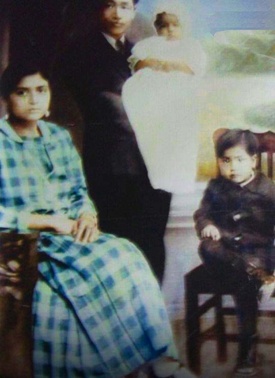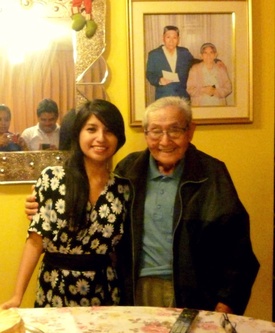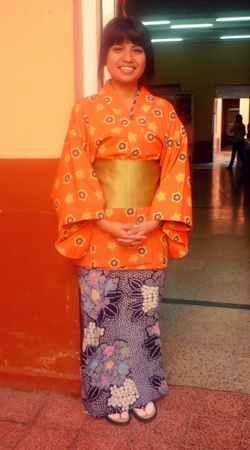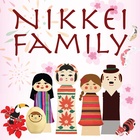For a little girl it can be very complicated to live with a name as particular as the one I have. I had to learn from a very early age that this was due to my Japanese ancestry, even though I didn't quite understand what that actually meant. For me, at that time, it was just the argument I used to silence the children who made fun of my name. Thus, every time someone came out with a new nickname, or made a joke about my last name, I had to be patient and explain to them, for example, that my last name was spelled Yabe, and not Key, because like my name , was Japanese.
Having to always explain my origin made me feel more ashamed than proud for a long time. I only knew that my great-grandfather had come from Japan, and that was the end of the story. I didn't grow up with traditions inherited from him, or celebrating his holidays, or anything. For me it was something so distant that it had no more influence on my life than having been burdened with a difficult name.
As I grew older and nicknames became questions like: Do you speak Japanese? Do you know karate ? and Do you eat with “sticks”?; It was when I started to get interested in my Nikkei side.
For many years I had to settle for just knowing that my great-grandfather's name was Yoshi Yabe and that he had left his country during the First World War. Beyond that, and what I knew about Japan from general culture, my Nikkei side remained a mystery to me.
However, one day, overnight, my grandfather began to tell me stories about his father. I had always asked him questions about it, but he had never told me anything specific. I have no idea why. Although knowing his character, perhaps he felt that I was too young to really value the content of his stories.
Little by little my grandfather revealed to me an entire past that I was unaware of, but that belonged to both of us.
This is how I discovered that my great-grandfather had lived in Fukushima and that due to the complicated situation in which his family lived, he was forced to leave his country to come to Peru, when he was only 21 years old.
When she arrived, she had a similar experience to the one I had as a child: people found her name very strange and difficult to pronounce. For this reason, he had to call himself Eduardo. Years later, this would be the name I would choose for my grandfather.
Little by little my great-grandfather adapted to his new life in Peru. He always worked very hard. He knew how to do everything, and that, added to his good character, made him a very respected person in his new community. He even became the person in charge of the town clock.
However, despite having adapted so well to his new home, until the last of his days he missed his country. He died with the longing to return. My grandfather tells me that many times he saw him cry with nostalgia and that every time a holiday in his land was celebrated, my great-grandfather would take out his Japanese flag and meet with the other two Japanese who lived in the town.
My grandfather shares these episodes and many others with me, over and over again, but I never get tired of hearing them. I like to visit him and sit next to his chair, while he tells me the memories of his father and makes me an accomplice in his adventures. This has become almost a ritual and has created a beautiful bond between us.
Perhaps my grandfather was not able to transmit to us the language, rituals or customs of his father, but in every story he tells me, I see reflected the values inherited by my great-grandfather, such as perseverance, respect for elders, honesty and the discipline. Their stories gave birth to the need in me to get closer to the Nikkei community and learn more about Japanese traditions.
Thanks to the memories of my beloved grandfather, today I feel proud to carry within me the union of two cultures.
© 2015 Yuriko Yampufé Yabe






